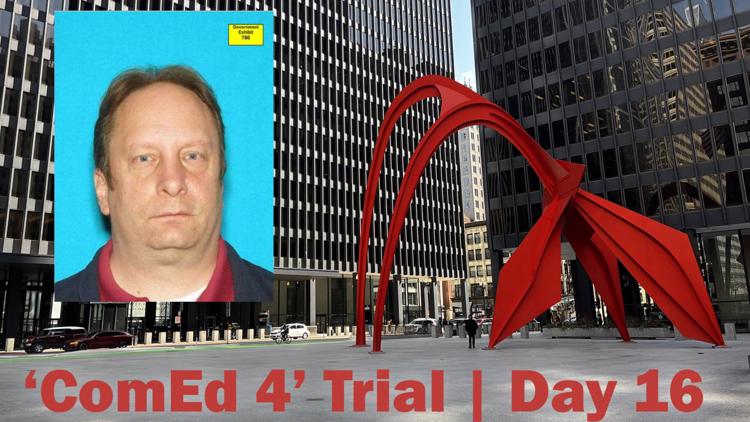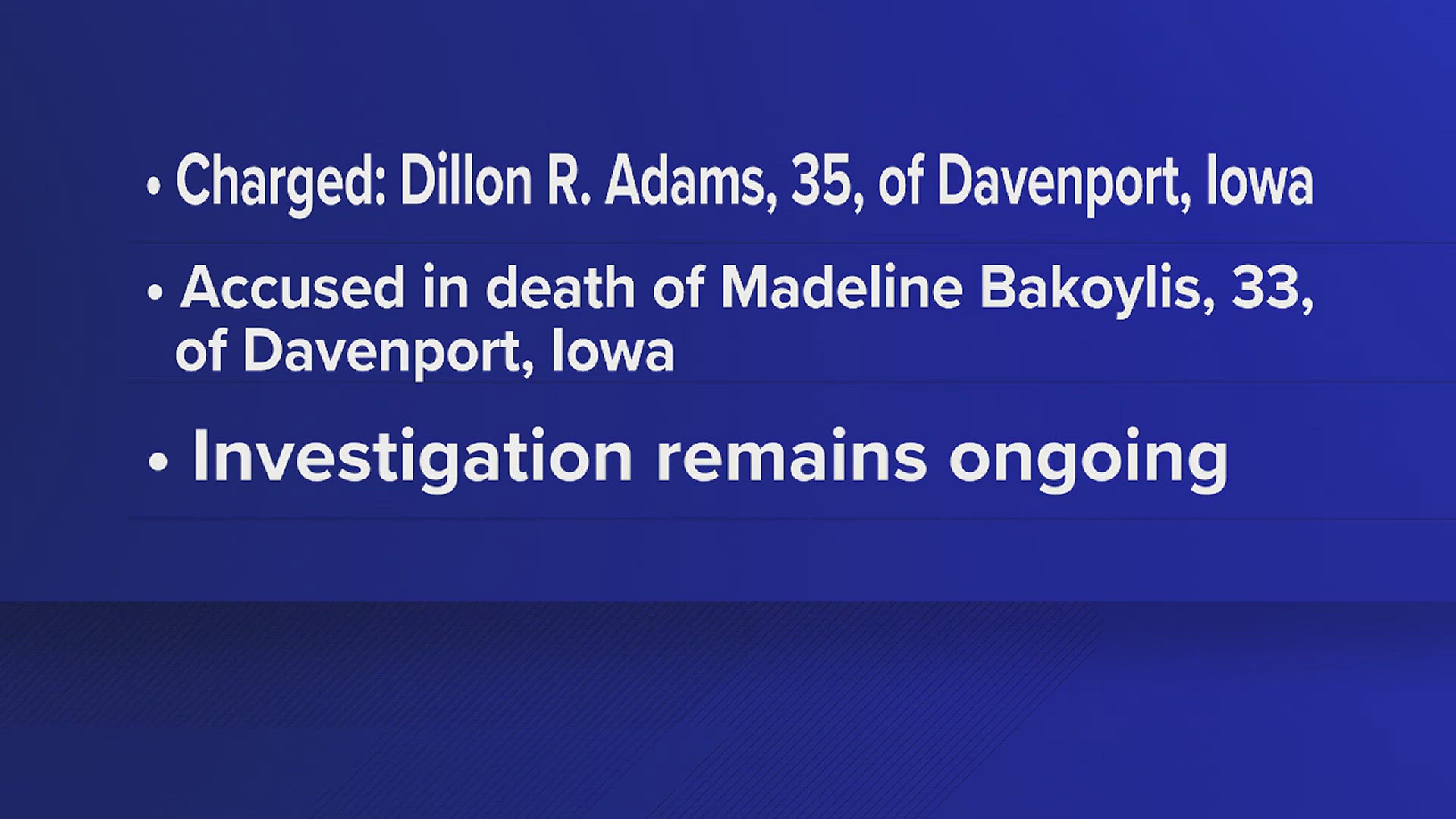CHICAGO — After spending two decades giving up most of his nights, weekends and vacation time to do unpaid campaign work for former Illinois House Speaker Michael Madigan’s political organization, longtime 13th Ward precinct captain Ed Moody had a request of the speaker.
Moody said he needed to save more for his retirement, despite the pension guaranteed to him from his years of work for the Cook County Highway Department, and later the chief judge’s office.
So Moody asked Madigan if he could connect him with a lobbying contract. Madigan had gotten Moody his previous jobs, neither of which required him to interview.
But the speaker was slow to respond to the request, Moody told a federal jury Tuesday, resulting in an emotional meeting that also included Ed’s twin brother Fred Moody, who served as his co-precinct captain.
“I never got the sense that (Madigan) wanted me to become a lobbyist because you start to build a business,” Ed Moody testified to a federal jury on Tuesday. Moody’s attorney asked for and was granted an immunity agreement.
“I didn’t feel like he wanted me to be independent of his politics,” Moody said.
Even so, Ed Moody was connected with Madigan’s closest confidant, Mike McClain, who had spent decades as the top contract lobbyist for electric utility Commonwealth Edison. McClain brought Moody on as a subcontractor in his lobbying business, and Moody eventually began collecting $4,500 each month.
At the outset of that arrangement in 2012, Moody testified that McClain told him the contract “was a hell of a plum and I owed the speaker big.”
Moody did some work for McClain during those first two years, like making calls to the district offices of a small group of lawmakers and asking if they were having any ComEd-related issues. Moody testified that he gave them all McClain’s contact information.
In 2013, Moody sent McClain a report that he’d knocked on doors for more than 200 hours in the Chicago Ridge area, speaking to residents about ComEd’s new “Smart Grid” program. McClain’s attorney accused both the government and Moody of downplaying that work in order to fit the narrative that Moody had done little to no work for his monthly checks.
But Moody said he understood that his main job as a contractor under McClain was to keep doing what he did best: knocking on doors and speaking to voters.
“He said. ‘Understand this, that I control that contract,’” Moody said of Madigan. “‘If you stop doing your political work, you’ll lose that contract.’”
Moody is one of four Madigan allies who federal prosecutors allege did little to no work for monthly checks funneled through contract lobbyists for ComEd. The government claims the arrangements were part of a larger yearslong bribery scheme orchestrated by McClain and two other ComEd lobbyists, in addition to the utility’s former CEO, all of whom are codefendants in the case. Ex-ComEd executive Fidel Marquez also helped to construct the alleged scheme but is a cooperating witness in the case and has been charged separately.
The alleged bribery scheme was directed at Madigan, who prosecutors said cleared a path for the utility’s key legislative priorities in Springfield, despite a history of animosity toward ComEd, in exchange for jobs and contracts for his allies – including Moody.
Ed and Fred Moody met Madigan when the brothers were in their mid-20s and had just moved to Chicago’s West Lawn neighborhood on the city’s Southwest Side. Ed Moody testified Tuesday that the twins “loved walking” and said they’d encountered the speaker on one of their lengthy “four, five” hour walks.
In the space of three election cycles in the early 1990s, the Moody twins turned that love of walking – and their knack for talking to voters – into a record of success, making them Madigan’s top precinct captains.
“It was really about building relationships, building rapport, becoming almost a part of their family, (understanding) who they were, what was going on in their lives,” Moody said of his unpaid work speaking to voters. “But it was also about winning elections – connecting them to city services, county services, state services.”
Moody referred to that volunteer work as “my politics” during his testimony Tuesday. He said that as his contract was passed from McClain to three other ComEd contract lobbyists through the end of 2018, he understood that’s what his real job was.
In 2014, for example, Moody met ComEd lobbyist Jay Doherty at Maggiano’s in Chicago, where Doherty held events for his volunteer gig as president of the City Club of Chicago. Doherty was set to take on Moody from McClain’s contract as McClain was winding his business down to retirement.
“He said I was famous,” Moody testified of his conversation with Doherty. “He said he knew the speaker liked me and a lot of the state representatives liked me.”
Doherty gave Moody one directive, he testified.
“Keep knocking on doors,” Moody said he was told by Doherty.
And four years later, when Moody was new to another such subcontracting arrangement with former southern Illinois lawmaker-turned-lobbyist John Bradley, Moody said he encountered Madigan by chance while out knocking doors in the speaker’s neighborhood. Bradley has not been accused of wrongdoing.
Moody said he saw the speaker getting out of his car and expressed concern that the contract he’d inked with Bradley three weeks prior had contained specific language about doing consulting work on behalf of ComEd. But Bradley hadn’t given Moody any assignments, he told Madigan.
“He said ‘No, that’s okay,’” Moody said he was told by the speaker. “‘What you’re doing right now is what’s important to me, it’s what’s important to John Bradley and it’s what’s important to ComEd.’”
By that point, Moody was in his second year as a Cook County Commissioner, having been appointed to fill the term of a commissioner who’d died of cancer. Moody said he didn’t really like the job and had decided not to run for the seat in the 2018 election cycle. Instead, Moody aimed for an appointment as the county’s last Recorder of Deeds, an office that was on track to merge with the county clerk’s office. When Moody got that job, Bradley, McClain and Madigan mutually agreed to bring Moody’s monthly checks to a stop.
Assistant U.S. Attorney Diane MacArthur asked Moody why he’d sent her an email last month requesting she state in court that she didn’t believe Moody knowingly sent out false invoices.
“I didn’t want anybody to think I knowingly tried to defraud ComEd,” Moody said. “It was never my intention to defraud really anybody.”
MacArthur instead led Moody to testify multiple times that he submitted false invoices and cashed checks based on those false invoices.
When presented with a series of envelopes seized from his home in a May 2019 FBI search, MacArthur asked Moody why some of them, pre-stamped and addressed to Doherty, had never been sent. Moody replied that his wife, Vicki, had put together invoices and envelopes for months in advance, which he said made sense since “nothing ever changed” on the invoices.
Although Moody appeared relaxed in the witness box, he often answered MacArthur’s questions faster than she could finish asking them, prompting her to request he slow down.
“Oh I’m sorry,” Moody said. “I feel like I’m campaigning.”
The trial continues at 11 a.m. Wednesday when the government is expected to rest its case.
Capitol News Illinois is a nonprofit, nonpartisan news service covering state government. It is distributed to more than 400 newspapers statewide, as well as hundreds of radio and TV stations. It is funded primarily by the Illinois Press Foundation and the Robert R. McCormick Foundation.



